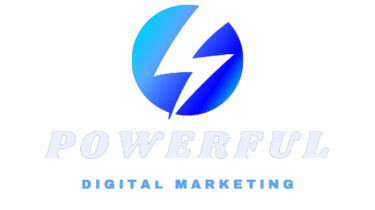Why AI PPC Travel Industry Campaigns Are Changing the Travel Advertising Game
Stay ahead in travel marketing with our analysis on AI PPC travel industry. Powerful Digital Marketing's team leverages 30+ years of experience and AI expertise.
POWERFUL BOTS
Powerful Digital Marketing
11/20/20256 min read


Why AI PPC Travel Industry Campaigns Are Changing the Travel Advertising Game
Could your next customer decide before they ever see a search ad? That shift is already underway as search behaviour and ad formats compress how people discover and decide.
Powerful Digital Marketing brings over 30 years of end-to-end travel experience and advanced AI marketing expertise to help UK brands turn these trends into performance. Google and other platforms are testing ad modes and in‑app shopping that surface offers earlier, while analysts warn organic traffic may fall sharply in the near term.
This means the old seasonal, manual approach no longer works. Winning campaigns now run always‑on, learn fast and feed platforms with steady creative and data. GEO and paid search must work together with content to influence customers before they hit traditional listings.
Expectations for British travel brands include AI-aware structures, scaled creative supply and robust data pipelines. This report will explain shifting dynamics, risks of inaction and practical steps to build measurement, audience signals and campaign models that last.
Setting the scene: the AI-first shift reshaping search, paid search, and social for travel brands
Users increasingly assemble answers across assistants and engines, so discovery no longer follows a straight path. Google’s share has fallen below 90% as more people consult generative outputs and alternative search engines. Gartner warns this could divert up to 50% of organic traffic to AI results by 2028.
Generative search fragments the journey
Linear discovery is breaking up. People pull snippets from multiple surfaces, not just a homepage or a single website session.
Practical effect: brands must expect shorter sessions and dispersed signals that flow across platforms.
From pay to play, to training algorithms
Early tests of AI Mode Ads and in‑app shopping mean users may pick suppliers before a traditional SERP ad appears. That shifts the work from bidding to feeding algorithms with timely, structured feeds.
Content demand explodes on social media
Deloitte forecasts a tenfold rise in content need. Platforms reward relevance, recency and many creative variants, not just higher budgets.
Action: scale creative supply, codify message variations by audience and destination, and publish live pricing and availability so summaries stay accurate.
The AI PPC travel industry: present-day dynamics and why traditional tactics underperform
Search behaviour now compresses the path to purchase. Decisions often form from early intent signals, so many users choose suppliers before a traditional search ad ever appears. That reduces visibility for paid search placements on competitive holiday and flight terms.
Users decide earlier in the funnel
Pre‑SERP decision-making means fewer full sessions and less time for classic creative to influence choice. Platforms surface offers sooner, so brands must feed signals that arrive earlier in the journey.
Legacy bids vs continuous algorithm training
Manual, seasonal bid changes no longer cut it. Continuous training needs rich data signals: audience, product, price, availability, geo, device and recency. Campaigns should be evergreen so they accumulate learning instead of resetting each season.
Audience‑led ad groups map assets to holiday types and traveller profiles. This improves relevance for destination queries and helps algorithms learn faster.
"Feed the platforms with structured data, creative and consistent signals."
Tools matter: feed management, creative generation and experimentation systems keep learning steady. Capture first‑party data and add consented signals to raise match quality. Finally, use measurement guardrails to separate retargeting from net‑new acquisition so algorithms do not over‑optimise on easy conversions.
Quantifying the risk of inaction for travel marketers
When platforms begin answering queries directly, formerly dependable site visits can vanish overnight. That change has measurable consequences for bookings, budgets and long‑term growth.
Organic erosion: lost clicks and revenue exposure
A UK agency earning £40m a year from blog-led discovery could lose 20–30% (£8–12m) if summaries and structured data are ignored. Reduced site clicks mean fewer customers reaching booking pages and weaker first‑party data capture.
Paid search pressure: lower CTRs and budget inflation
For a tour operator spending £4m on paid search, a 25% drop in CTR may force an extra £1m of spend just to hold volume. That rise erodes margins and pushes teams to chase short-term wins rather than profitable growth.
Paid social headwinds: declining engagement and missed bookings
A social media programme with £2.4m annual media could see a 30–40% engagement fall. That equates to £720k–£960k in lost potential bookings if creative variety and relevance are not fixed.
Practical takeaway: protect revenue fast with structured data, feed hygiene and GEO signals to regain presence in new result surfaces.
Reallocate time and media to evergreen, signal‑rich programmes that speed algorithm learning and cut waste. Also, separate measurement for retargeting and net‑new acquisition so declining reach does not hide behind apparent conversion rates.
OTAs, aggregators, and AI favouritism: the new competitive landscape
Listing giants win visibility because their feeds give search engines reliable, real‑time signals at scale. Booking.com, Expedia and Tripadvisor supply dense, structured data and constant refreshes, so algorithms can trust price and availability quickly.
Why structured data and constant updates give OTAs an edge
Aggregators load millions of entries in machine‑readable formats. That density and frequency let search systems surface them in summary lists before users visit a website.
Practical effect: brands with sparse or stale feeds lose presence in comparison results and miss the chance to shape early intent.
Brand differentiation in flat comparison lists
AI‑led lists often flatten nuance into price-and-availability rows. To counter this, convert service promises into markup: inclusions, sustainability claims, unique experiences and verified local guides.
Tip: use entity markup and schema for offers, reviews and policies so summaries reflect what makes your brand different.
Operational steps: publish structured feeds, push live availability, keep pricing accurate and refresh content frequently. Add itineraries, FAQs and clear policy pages so search models find meaningful signals beyond cost.
At a market level, UK brands win by owning narrow niches, proving local authority and embedding verified traveller reviews into feeds. Test creative variants that highlight service, not just discounts, and iterate fast to build a lasting competitive advantage.
What winning AI-powered paid search looks like for travel brands
Winning paid search marries evergreen campaign design with clear audience signals so platforms keep learning year‑round. Build structures that avoid seasonal resets and anchor ad groups to high‑traffic, conversion-ready pages.
Define evergreen campaign structures around trend-led products and pages that update with live availability. This preserves learning and reduces wasted reset time.
Scalable, evergreen campaigns that keep algorithms learning year‑round
Front-load budgets for peak UK search periods, especially H1 and Q1 for long‑haul, and daypart to evenings and weekends when planning is strongest.
Focused budgets aligned to peak UK search times and new customer growth
Segment acquisition from retargeting. Use exclusions and separate bidding to protect net‑new reach and avoid over‑indexing on returning customers.
Audience-led structures: destination intent with holiday-type specificity
Map the same destination queries into family, luxury, adventure, city break or all‑inclusive groups. This raises relevance and speeds learning for each target audience.
Creative and content creation systems to feed search engines and social media
Maintain a 5–10x asset supply: modular copy, visual variants and frequent refreshes. Feed optimisation, experimentation frameworks and automation tools scale management without losing control.
Signals to pass: availability, price bands, inventory changes and location. Protect pacing around public holidays to keep data quality stable.
These steps let travel brands convert more efficiently across seasonal peaks while building durable learning and conversion momentum.
Data, signals, and measurement: rebuilding PPC efficiency in an AI-led market
Rebuilding campaign efficiency starts with reliable feeds, consented audiences and clear attribution. First‑party capture and clean pipelines give brands control as result formats shift and sessions shorten.
First‑party data, structured feeds and GEO to complement SEO
Define a UK-first data plan: consented CRM capture, preference centres and server‑side tagging to strengthen audience modelling.
Feeds must mirror the website taxonomy and include live availability, pricing, geo attributes and policy details. High feed quality improves ingestion and helps algorithms trust your offers.
Use GEO as a layer that complements seo: entity markup, machine‑readable FAQs and clear location attributes make your site discoverable across new result surfaces.
Attribution, incrementality and separating retargeting from net‑new users
Measure incrementality with holdouts, geo splits and clean‑room analyses to quantify net‑new bookings. Avoid mixing remarketing and prospecting budgets.
Practical rule: separate remarketing from prospecting targets so acquisition performance is not masked by easy retarget conversions.
Adopt tools for data validation, creative tagging and experiment governance to protect signal quality and efficiency. Align all marketing efforts to bookings, revenue and margin, not proxy metrics.
"Holdouts and geo splits reveal the true lift of acquisition channels."
Powerful Digital Marketing’s advantage: 30+ years in travel, AI expertise in action
Three decades of sector experience meet modern tools and operating models. PDM combines deep travel knowledge with hands‑on systems to deliver clear business value for UK travel brands.
Team depth and practical, end‑to‑end capability
Our cross‑functional team spans tour operators, airlines, hotels and DMCs. We pair specialists with tooling to cover discovery, data readiness, feed optimisation and creative systems.
That mix compresses implementation time and derisks change for the business.
From strategy to measurable results for AI PPC travel industry businesses
We train algorithms with rich signals, live availability, pricing, geo and consented audiences, so models learn faster and compound gains across channels.
Proof point: a global brand saw $1.4M incremental revenue, +19% YoY growth and a 57% cut in paid search media after transformation.
Governance matters: transparent media, clear measurement and UK‑specific seasonality built into plans protect ROI and speed reinvestment.
Conclusion
Responding now with scaled content and cleaner data will keep your brand visible as result formats evolve. Act quickly to protect bookings and hold share while users adopt assistants and generative answers across search engines.
Key actions: build machine‑readable brand signals, move to evergreen campaigns aligned to UK demand peaks, and expand content capacity so offers stay fresh. Use GEO, tidy feeds and solid website markup to reduce misinterpretation by algorithms.
Measurement matters: separate retargeting from acquisition, focus on bookings and value, and audit signals regularly. Powerful Digital Marketing combines 30+ years of sector experience with practical tools to help UK travel brands turn disruption into advantage, get in touch to start.
WORKING HOURS
Monday - Friday 9:00 AM - 6:00 PM
Saturday - Sunday 8:00 AM - 12:00 PM
Want to Call? Ask our Powerful Bot for the Number
ADDRESS
7A High Street
Barnet
Greater London
EN5 5UE
